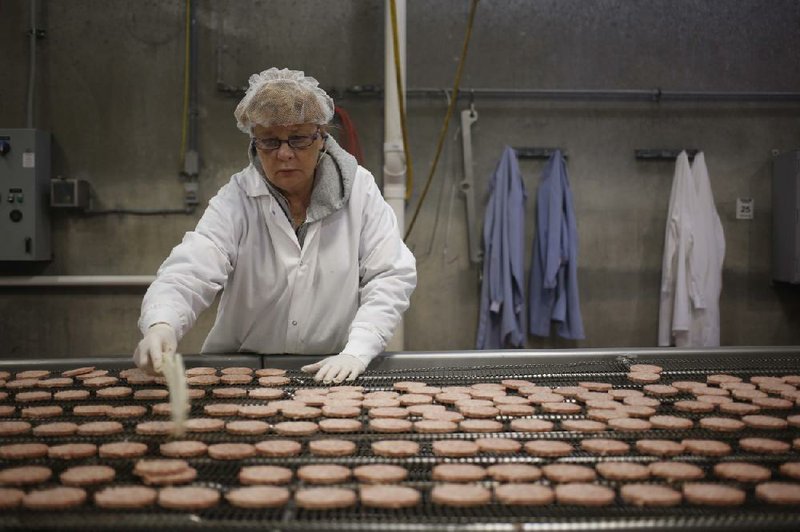Pork prices are expected to increase by this summer, according to executives at Tyson Foods Inc.
While pork prices have increased 6.7 percent since October, Jim Lochner, Tyson’s chief operating officer, said the real effects of a combination of factors won’t be seen until the summer months. He attributed the increase to a projected reduction in the herd head count and an increase in wholesale prices.
The porcine epidemic diarrhea virus has affected pork supplies. The virus is a highly contagious corona virus that causes diarrhea, nausea and death in swine and is spread through ingesting contaminated manure.
“This fiscal year, we expect the PED virus to impact domestic hog supplies by 2 percent to 4 percent,” Lochner said. “In our plant locations, we’ll see the effects in the summer months.”
To combat the virus’ effect and herd reduction, Tyson officials said they plan to fatten up pigs before slaughter, though they did not provide comment as to how this would occur.
Jerry Masters, executive vice president of the Arkansas Pork Producers Association, said increasing a pig’s weight would require more time in the feeder lot, which is where pigs go to bulk up before slaughter.
“To feed hogs to a heavier weight requires more products and is more expensive because of the cost of feed,” Masters said.
Masters anticipates a six to-eight-week loss in production because of the virus.
There are no official numbers for hogs lost to the virus, but the American Association of Swine Veterinarians reported 2,692 positive cases of the virus nationally.
Preston Scroggin, director of the Arkansas Livestock and Poultry Commission, said that while there are no official numbers, the virus has reached millions.
“It’s affected close to 2 million, maybe more,” Scroggin said. “You can see the prices at the grocery store to see its effect.”
As of Wednesday, there were no reports of the virus in Arkansas herds.
“No herds have tested positive - yet,” Masters said.
Business, Pages 25 on 02/06/2014
